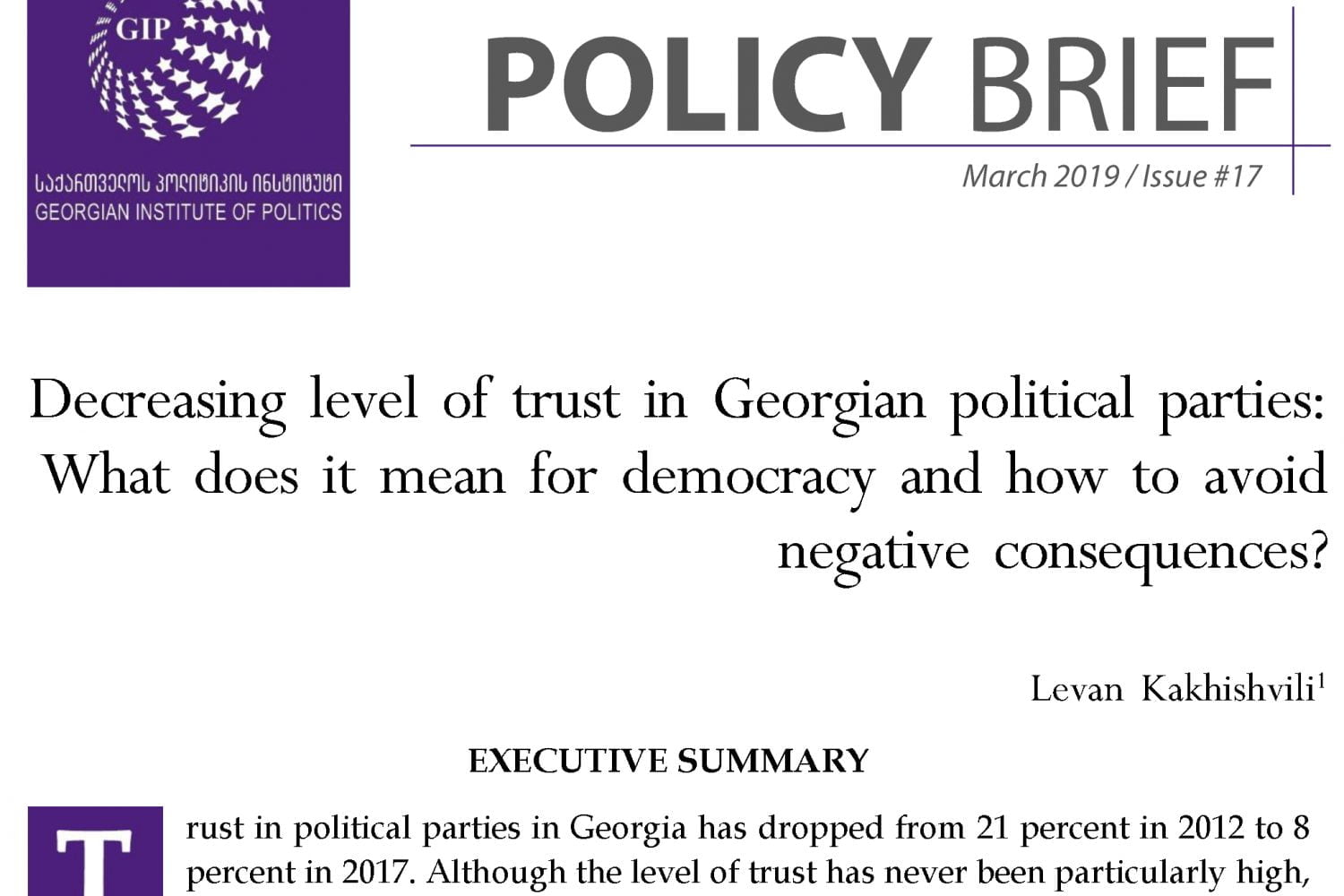2019-03-04 12:01:48
Trust in political parties in Georgia has dropped from 21 percent in 2012 to 8 percent in 2017. Although the level of trust has never been particularly high, this trend should raise concern and inspire political parties to act. Political trust is mostly determined by societal beliefs and political institutions. This paper analyzes both of these dimensions to demonstrate the roots of the distrust. In terms of beliefs, the paper explores four aspects of trust as perceived by the Georgian public: competence, benevolence, integrity, and predictability. The paper also considers the role of political institutions.In particular, it discusses the lack of transparency of political parties, which adds to voters’ lack of awareness and knowledge — and leads to low levels of trust. The paper includes an analysis of a range of public opinion surveys conducted between 2015 and 2018, including CRRC’s Caucasus Barometer and NDI public opinion polls, which provide insights on public perceptions and beliefs. Furthermore, the paper demonstrates that the low level of political trust is perilous for Georgian democracy — specifically for political parties’ ability to perform their representative functions. Political parties and other stakeholders interested in Georgia’s democratic consolidation should be aware that the high share of distrustful voters has a direct impact on the level of citizens’ participation in politics. Specifically it means their involvement in party politics will remain low. Therefore, this paper elaborates a number of recommendations for Georgian political parties, civil society organizations and think tanks in Georgia as well as donor organizations to take action to increase trust in political parties in Georgia.




